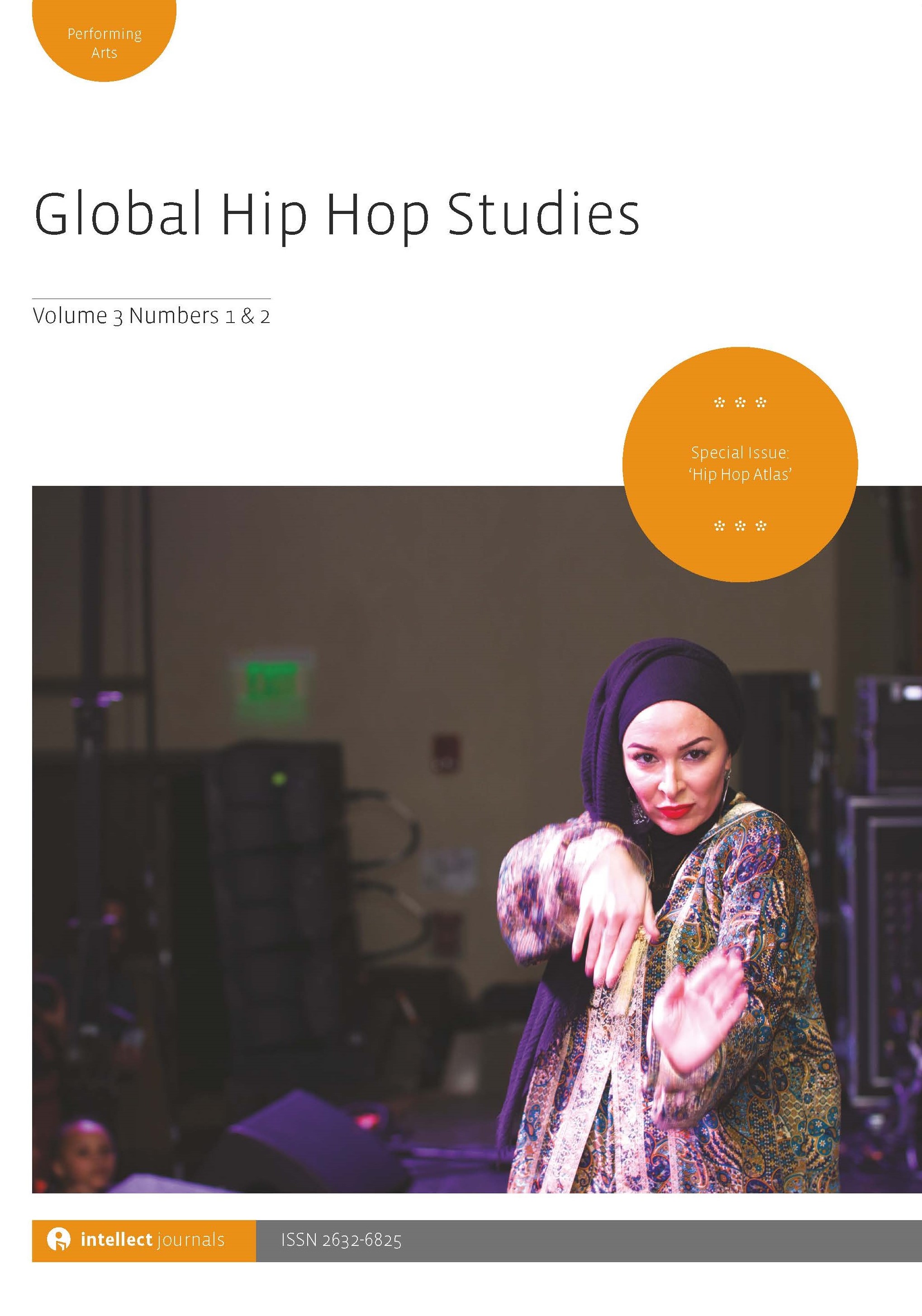-
oa Canada
- Source: Global Hip Hop Studies, Volume 3, Issue 1-2: Hip Hop Atlas, Dec 2022, p. 41 - 48
-
- 31 Mar 2022
- 24 Mar 2023
- 20 Dec 2023
Abstract
In this country profile, Mark V. Campbell provides historical, cultural, socio-political and linguistic insights into the formation and existence of hip hop culture in Canada. Focusing on multiple elements within the culture and by exploring the climate of media imperialism that impacts the country’s cultural forms, the contribution provides wide ranging and multiple contexts in which hip hop culture is situated within this large but sparsely populated country.
© 2023 (2022) The Author(s). Published by Intellect Ltd.
This article is Open Access under the terms of the Creative Commons Attribution-NonCommercial 4.0 International licence (CC BY-NC), which allows users to copy, distribute, transmit and adapt the article, as long as the author is attributed and the article is not used for commercial purposes. To view a copy of the licence, visit https://creativecommons.org/licenses/by-nc/4.0/



